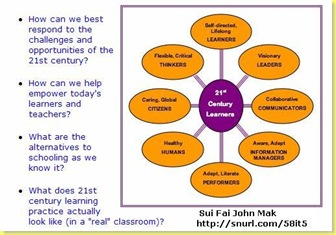My deepest thanks Stephen Downes and George Siemens for providing a great platform for Conncetivism and Connective Knlowledge and to all the participants that shared their experiences and made my jouney a memorable one.
Speciat Note: I had the honor of working with Vivpav Baxi (India) and Carlos Casares (Spaniard in Germany), thanks to both for their ideas, efforts, patience, creativity, support and trust. It was a wonderful experience!
You'll see evidence of openess, autonomy, diversity, connectedness and equity. We all pulled our share of work and got a high level of trust among us. It was amazing!
I invite you to see our process, please visit our wiki. It was an enriching experience to work in a team with Carlos and Viplav, although we are so different we came to respect our differences. I learned a lot during this last weeks from them and with them. This week was excruciatingly long; we were tied up with technical difficulties with SplashCast (btw, support has not answered), each of us displaying our skills with unsuccessful results until Viplav managed to convert it to a YouTube video.
Although our answers to the final questions are placed here, I'll post mine here to leave a complete account of my learning.
1. What is the quality of my learning networks: diversity, depth, how connected am I?
My learning networks are more deep and diverse now. Most of them are focused on online learning and have different subjects of study.
My earlier networks, all in English, have become stronger, diverse and deeper, it seems that placing myself in different forums and live events has also enriched them. I see the latter as proof that everything goes back to the network, the knowledge travels, gets modified and it's placed back for further additions, modifications, challenges, etc. The new contacts I made formed a new network that holds deep conversations, I have a few valuable connections there and I hope to acquire more with time. Although I gained a lot of knowledge, by reading the articles suggested, the threads at Moodle and the individual blogs, I perceive that network too advanced for me to contribute in a useful way. I need to keep learning to interact with more confidence there. Lack or confidence also kept me from posting more in Moodle.
Besides my family and friends I didn't have Hispanic nodes in my network before the course. My recent Spanish network needs further nutriment, lack of time during the course, to my regret, prevented me from interacting more with the Spanish community. After the final project is handed over I will pursue those connections.
2. How has this course influence my view of the process of learning (assuming, of course, that it has)?
Of course this course influenced my point of view about learning! The information I found was new for me in every sense. I must admit I had not heard about connectivism before and I had not given serious thought to online learning. To think that knowledge is on the network and that learning is the ability to navigate through the connections made no sense at all at the beginning. Now, after this connective experience, it all makes sense. The last live session added the cherry to my pie, thanks for answering my question, even if a George mentioned, it was off topic. I know, because I've tried, that to explain my experience with words leads me to terrible misunderstandings and endless discussions. You have to live it to understand it.
If I ever have the opportunity to give another online course I will plan it completely different.
3. What types of questions are still outstanding?
 An issue is evaluation or assessment (which from my point of view it's always subjective), a valid evaluation would have to be reached by each adult participant or parent in case of youngsters. Would a course survey taken before and after a connectivist course help the learner to assess his performance? Something like this image maybe?
An issue is evaluation or assessment (which from my point of view it's always subjective), a valid evaluation would have to be reached by each adult participant or parent in case of youngsters. Would a course survey taken before and after a connectivist course help the learner to assess his performance? Something like this image maybe?I see learner's dependency as a main drawback to a connectivist course, Would it be valid to run a course to foster autonomy prior to a connectivist course?
4. How can you incorporate connectivist principles in your design and delivery of learning?
I may be wrong but I perceive myself as acting in a connectivist way online and offline.
Offline, I work with nodes from different disciplines, mainly Psychiatrists, Neurologists, Language Therapists, Psychologists, Social Workers and Nurses. We are all emergent, depending on the context and the kind of issue we gather to reach a therapeutic path and a solution; in the end it's the patients' (family or individual) actions which tell us if the intervention was successful or not.
Online, I work with basic computer programs offered by LearnFree which let the learner's evaluate themselves, I created a Ning site that is chaotic per se to foster connections with other learners and widen their network and we have a Yahoo Group as mailing list. Every member has his/her own learning objectives, we add resources or comments when we invited to do so and every learner decides when and how ofter to engage in the discussion. I would like to design with more vision the framework of my courses in the future and invest time on modeling or teaching autonomy.



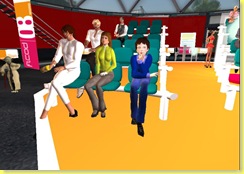 to the International Forum on Digital Contents (
to the International Forum on Digital Contents (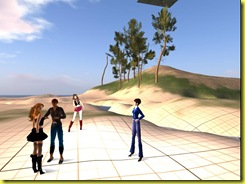

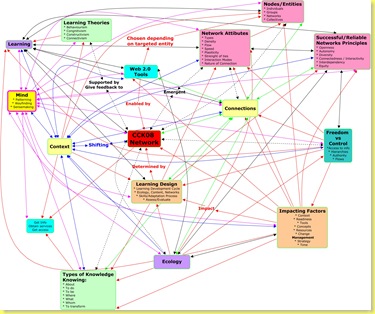
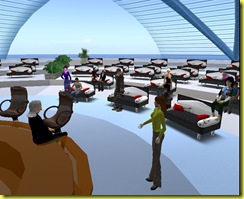
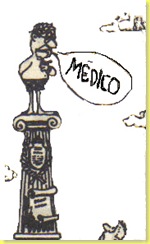

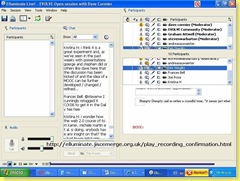
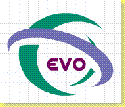


 ined FaceBook, I had so many friends already there that I started feeling concerned by my slow answer rate.
ined FaceBook, I had so many friends already there that I started feeling concerned by my slow answer rate. 
![clip_image002[4]](http://lh5.ggpht.com/_tog2FLJt8ZQ/SRewEfOMAtI/AAAAAAAAAHs/ov0u2-Zk7MM/clip_image002%5B4%5D_thumb.jpg?imgmax=800)
![clip_image003[4]](http://lh5.ggpht.com/_tog2FLJt8ZQ/SRewGrFfM4I/AAAAAAAAAH0/trdU9OBIfq4/clip_image003%5B4%5D_thumb%5B1%5D.jpg?imgmax=800)
![clip_image004[4]](http://lh4.ggpht.com/_tog2FLJt8ZQ/SRewHvMKG0I/AAAAAAAAAH8/k_2NnWzcl9g/clip_image004%5B4%5D_thumb%5B1%5D.jpg?imgmax=800)
![clip_image005[4]](http://lh6.ggpht.com/_tog2FLJt8ZQ/SRewJQGVSkI/AAAAAAAAAIE/8T6Um-wAQZQ/clip_image005%5B4%5D_thumb%5B1%5D.jpg?imgmax=800)
![clip_image006[4]](http://lh5.ggpht.com/_tog2FLJt8ZQ/SRewKrTfp8I/AAAAAAAAAIM/807a7hAHY_M/clip_image006%5B4%5D_thumb.jpg?imgmax=800)

 a Spanish man born in Mexico. I'm bringing this to the table because the post title is the question he usually asked me when I was angry with him.
a Spanish man born in Mexico. I'm bringing this to the table because the post title is the question he usually asked me when I was angry with him. 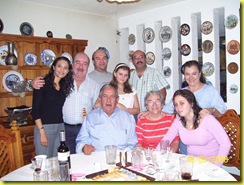 need to spare some time first to investigate your targeted person or group. You need to get involved first and find out hopes, desires, expectations, incentives, limitations, needs, interests, activities, etc. In sum, all that may be attractive for him/her or them. You also have to rely on the resources that you have and on the resources that your learners have access to as
need to spare some time first to investigate your targeted person or group. You need to get involved first and find out hopes, desires, expectations, incentives, limitations, needs, interests, activities, etc. In sum, all that may be attractive for him/her or them. You also have to rely on the resources that you have and on the resources that your learners have access to as 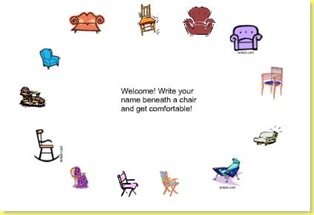
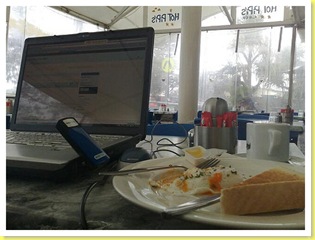
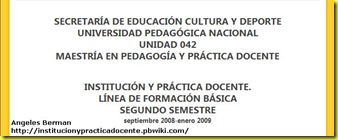 know how to use the Internet and it's really a joy to see them posting their work, pictures, debates, etc. at their Community as well as at their
know how to use the Internet and it's really a joy to see them posting their work, pictures, debates, etc. at their Community as well as at their 